How Maryland Weather Can Impact the Condition of Your Home
April 2023
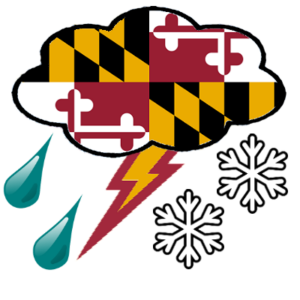
Home inspections are an important step in the home buying process in Maryland, as they can help identify any potential issues with the home before the sale is finalized. A home inspection is a thorough visual examination of a home’s structure, systems, and components, and can help buyers make informed decisions about purchasing a property.
In Maryland, home inspections are typically conducted by licensed home inspectors who have been trained to identify issues with a home’s foundation, roof, plumbing, electrical systems, and more. They may also identify issues with pest infestations, mold, or other environmental hazards.
Home inspections in Maryland are not required by law, but most buyers choose to have one conducted to protect their investment and ensure they are aware of any potential issues with the home. Home inspections can help buyers negotiate repairs or price reductions with sellers, or make the decision to walk away from a property altogether.
Overall, home inspections are an important part of the home buying process in Maryland, and can help ensure that buyers are making informed decisions about their purchase and protecting their investment.
How weather conditions can affect your home
Weather conditions can have a significant impact on the condition of a home, particularly over the long term. Here are some ways in which different weather conditions can affect a home:
- Rain and moisture: Heavy rain and high levels of moisture can cause water damage, mold growth, and rot in wood and other materials. Moisture can seep into the foundation, causing cracks and instability, and damage to the roof, gutters, and siding. It is important to ensure that your home has proper drainage, gutters, and a waterproofing system in place to prevent water damage.
- Wind: Strong winds can damage roofs, siding, and windows, and even cause trees and power lines to fall on the home. This can lead to leaks, broken windows, and other forms of damage.
- Snow and ice: Heavy snow and ice can put a lot of stress on a home’s roof, causing it to collapse or leak. Ice dams can form on the roof, leading to water damage and mold growth. Frozen pipes can burst, causing water damage and flooding.
- Extreme heat: Extreme heat can cause the roof and siding to expand and contract, leading to cracks and other forms of damage. It can also cause the air conditioning system to work harder, leading to higher energy bills and potential breakdowns.
- Hail: Hail can damage roofs, siding, and windows, leading to leaks and other forms of damage.
Maryland’s Weather Conditions
Maryland’s weather conditions vary throughout the year and depend on the region of the state. Generally, Maryland has a humid subtropical climate in the southern and eastern parts of the state, and a humid continental climate in the western and northern parts.
In the summer months (June-August), temperatures in Maryland typically range from the mid-70s to low 90s Fahrenheit (24-33 Celsius) with high humidity. Thunderstorms are common during this time, and some regions may experience occasional heatwaves.
In the fall months (September-November), temperatures begin to cool off, with average highs in the 60s to low 70s Fahrenheit (15-22 Celsius). Fall foliage is also a highlight of this season.
Winter (December-February) in Maryland can be quite cold, with average temperatures ranging from the mid-20s to low 40s Fahrenheit (-4 to 5 Celsius). Snow is common in some regions, particularly in the western parts of the state.
Spring (March-May) in Maryland is generally mild, with temperatures gradually warming up from the 40s to 60s Fahrenheit (4-16 Celsius). Spring is also the rainiest season in Maryland.
Overall, Maryland’s weather conditions are influenced by its location along the East Coast of the United States, as well as its proximity to the Atlantic Ocean and Chesapeake Bay.
How each type of weather can impact a home’s structure, foundation, roof, siding, windows, etc.
Different types of weather can impact a home’s structure, foundation, roof, siding, windows, and other components in different ways. Here is an explanation of how each type of weather can impact a home:
- High winds: High winds can cause damage to a home’s roof, siding, windows, and doors. If winds are strong enough, they can even uproot trees or knock down power lines, causing additional damage.
- Heavy rain: Heavy rain can cause water damage to a home’s roof, siding, and foundation. If water is allowed to accumulate around a home’s foundation, it can seep into the basement or crawl space and cause mold growth or structural damage.
- Hail: Hail can cause significant damage to a home’s roof, siding, and windows. Large hailstones can dent or crack roofing materials, break windows, and damage siding.
- Snow and ice: Snow and ice can be heavy and cause damage to a home’s roof, especially if it is not designed to handle the weight. Ice dams can also form along the roofline, causing water to back up and potentially damage the roof, siding, and foundation.
- Extreme heat: Extreme heat can cause a home’s roof to expand and contract, potentially leading to cracks or other damage. It can also cause the home’s foundation to shift or settle if the ground dries out and shrinks.
- Extreme cold: Extreme cold can cause pipes to freeze and burst, causing water damage to a home’s interior. It can also cause cracks or other damage to a home’s foundation if the ground freezes and expands.
Overall, it is important to be aware of the potential impacts of different types of weather on a home’s structure and components, and to take steps to prevent or address any damage as needed. Regular maintenance and inspections can help identify potential issues and prevent them from becoming larger problems.

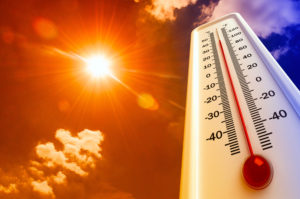

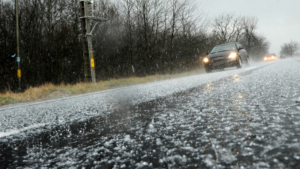
- Moisture damage: Maryland’s humid subtropical climate can lead to high levels of humidity and precipitation, which can cause moisture to penetrate your home’s exterior and cause damage to walls, ceilings, and floors. This can result in mold growth, rot, and other forms of water damage.
- Temperature fluctuations: Maryland can experience extreme temperature fluctuations throughout the year, with hot and humid summers and cold winters. These fluctuations can put a strain on your home’s heating and cooling systems and cause energy bills to soar. Additionally, fluctuations in temperature can cause expansion and contraction of building materials, which can lead to cracks in walls and ceilings.
- Storm damage: Maryland is prone to severe weather events, including thunderstorms, hurricanes, and tornadoes. These weather events can cause significant damage to roofs, windows, and siding, and can even result in flooding.
- Pest infestations: Maryland’s warm and humid climate can attract a variety of pests, including termites, ants, and cockroaches. These pests can damage your home’s structure and create health hazards for you and your family.
To minimize the impact of Maryland weather on your home, it’s important to keep up with regular maintenance tasks such as roof inspections, gutter cleaning, and sealing cracks in your home’s exterior. Additionally, you may want to invest in energy-efficient upgrades such as insulation and window replacements to help keep your home comfortable year-round.
Weather-related damage commonly found in Maryland homes
Maryland’s climate and weather patterns can lead to several types of weather-related damage to homes. Here are some specific examples of weather-related damage commonly found in Maryland homes:
- Water damage: Heavy rainfall, hurricanes, or tropical storms can cause water damage to a home’s roof, siding, and foundation. This can result in mold growth, structural damage, and other problems.
- Wind damage: High winds associated with thunderstorms or hurricanes can cause damage to a home’s roof, siding, and windows. Wind can also uproot trees or cause branches to fall onto a home, causing additional damage.
- Ice damming: During winter, snow and ice can accumulate on a home’s roof, leading to ice dams. These can cause water to back up under the shingles and into the home, leading to water damage, mold growth, and other issues.
- Foundation damage: Freeze-thaw cycles and heavy rains can cause the soil around a home’s foundation to shift and settle, leading to cracks in the foundation and basement walls.
- Mold growth: Humidity and moisture from rain or flooding can create ideal conditions for mold growth. This can lead to health problems and damage to a home’s structure and components.
- Pests: Warm, humid weather in Maryland can attract pests such as termites, which can cause significant damage to a home’s wooden components.
Overall, it’s important for homeowners in Maryland to be aware of the potential weather-related damage to their homes and take preventative measures to protect against it. This includes regular maintenance, inspections, and addressing any issues promptly.

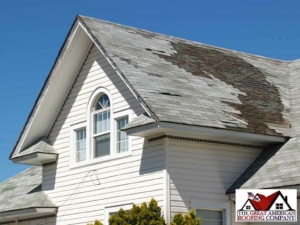
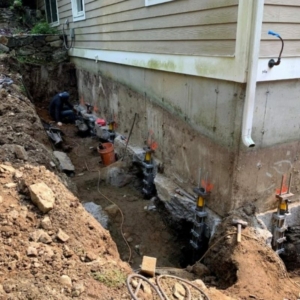
Tips for preventing weather-related damage to your home
Preventing weather-related damage to your home can save you time, money, and stress in the long run. Here are some tips to help you protect your home from weather-related damage:
- Regularly inspect and maintain your roof: Your roof is one of the most vulnerable areas of your home when it comes to weather-related damage. Regularly inspect your roof for any signs of damage, such as missing or damaged shingles, and make repairs promptly. Also, make sure your gutters are clear of debris to prevent water damage.
- Seal your home’s exterior: Cracks and gaps in your home’s exterior can allow water and air to seep into your home, causing damage and increasing energy bills. Seal any gaps with caulking or weatherstripping to keep your home’s interior protected.
- Trim trees near your home: Trees that are too close to your home can pose a threat during severe weather events, as they can fall and cause damage. Trim back any trees that are too close to your home or have dead branches that could potentially fall.
- Install storm shutters: If you live in an area that is prone to hurricanes or severe thunderstorms, consider installing storm shutters to protect your windows and doors from damage.
- Keep your basement dry: Basement flooding can cause significant damage to your home’s foundation and belongings. Keep your basement dry by installing a sump pump or dehumidifier, and make sure your home’s foundation is properly sealed.
- Check your insurance coverage: Make sure you have adequate insurance coverage for weather-related damage. Review your policy annually to ensure you are adequately protected.
By following these tips, you can help protect your home from weather-related damage and keep your family safe and comfortable.
Maintenance tips to keep your home in good condition throughout the seasons
Keeping your home in good condition throughout the seasons requires regular maintenance and attention. Here are some maintenance tips to help you keep your home in good condition year-round:
- Spring maintenance:
- Check and clean gutters and downspouts to prevent water damage
- Inspect the roof for any damage, and repair any issues before they become bigger problems
- Service your air conditioning system and replace filters
- Check for and seal any gaps or cracks in the exterior of your home
- Check for any signs of pest infestations, and address them promptly
- Summer maintenance:
- Keep your lawn and landscaping well-maintained to prevent overgrowth and potential fire hazards
- Check and replace weatherstripping around doors and windows to improve energy efficiency
- Check and clean your outdoor HVAC unit to ensure proper function
- Test smoke detectors and carbon monoxide detectors, and replace batteries as needed
- Fall maintenance:
- Clean gutters and downspouts again to prepare for winter
- Inspect and clean chimneys and fireplaces before using them for the season
- Check and service your heating system, and replace filters
- Seal any gaps or cracks in the exterior of your home to prevent heat loss
- Drain outdoor hoses and turn off outdoor water supply to prevent frozen pipes
- Winter maintenance:
- Keep driveways and walkways clear of snow and ice to prevent falls and damage
- Check for and seal any drafts around doors and windows to improve energy efficiency
- Test smoke detectors and carbon monoxide detectors again, and replace batteries as needed
- Monitor indoor humidity levels to prevent mold growth and other issues
- Check for and address any roof or gutter damage caused by winter weather
By following these maintenance tips throughout the year, you can help keep your home in good condition and prevent major issues from arising.

maintenance tasks that should be performed regularly to keep your home in good condition
Regular maintenance tasks are essential to keep your home in good condition and prevent costly repairs. Here are some examples of maintenance tasks that should be performed regularly:
- Cleaning gutters: Gutters should be cleaned at least twice a year to prevent water damage from overflowing gutters.
- Checking and replacing air filters: Air filters should be checked monthly and replaced as needed to ensure proper air flow and prevent HVAC system damage.
- Inspecting and maintaining the roof: The roof should be inspected annually and after major storms to check for damage and prevent leaks. Any debris or leaves should be cleared from the roof to prevent water buildup.
- Cleaning and sealing windows and doors: Windows and doors should be cleaned regularly to prevent dirt and debris buildup. Weather stripping and seals should be checked and replaced as needed to prevent drafts.
- Testing smoke and carbon monoxide detectors: Smoke and carbon monoxide detectors should be tested monthly to ensure they are working properly.
- Checking plumbing fixtures: Plumbing fixtures such as faucets and toilets should be checked regularly for leaks or damage.
- Inspecting the foundation: The foundation should be inspected annually to check for cracks or shifting.
- Pest control: Regular pest control measures should be taken to prevent pests such as termites, ants, and rodents from damaging the home.
Overall, regular maintenance tasks are essential to keeping your home in good condition and preventing costly repairs. By performing these tasks regularly, homeowners can identify and address issues before they become larger problems.
